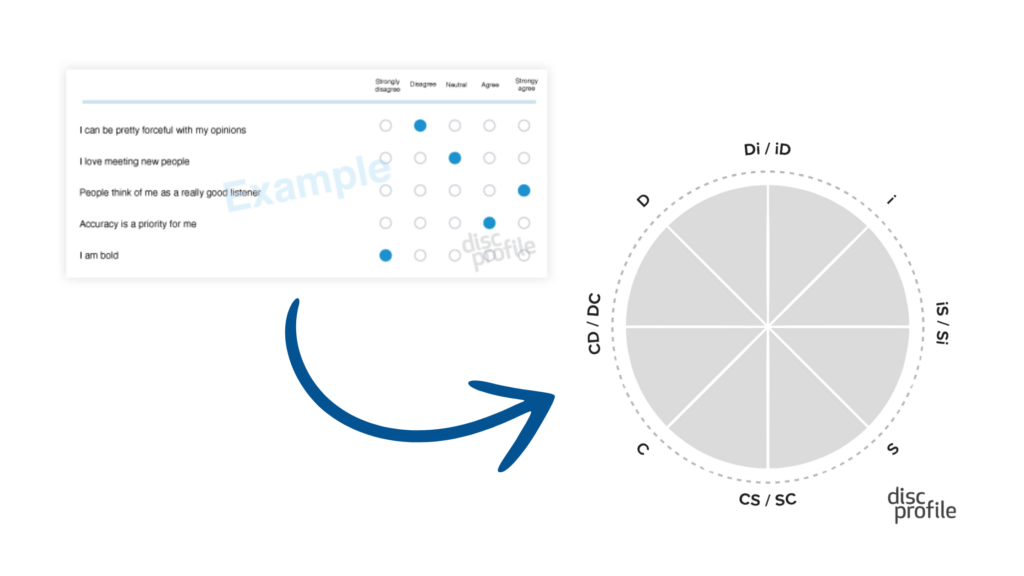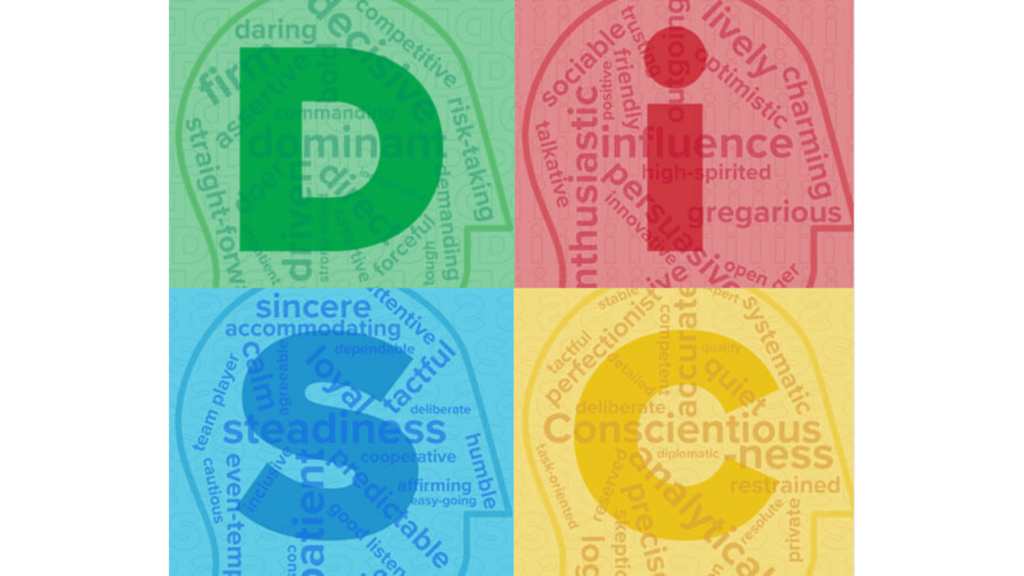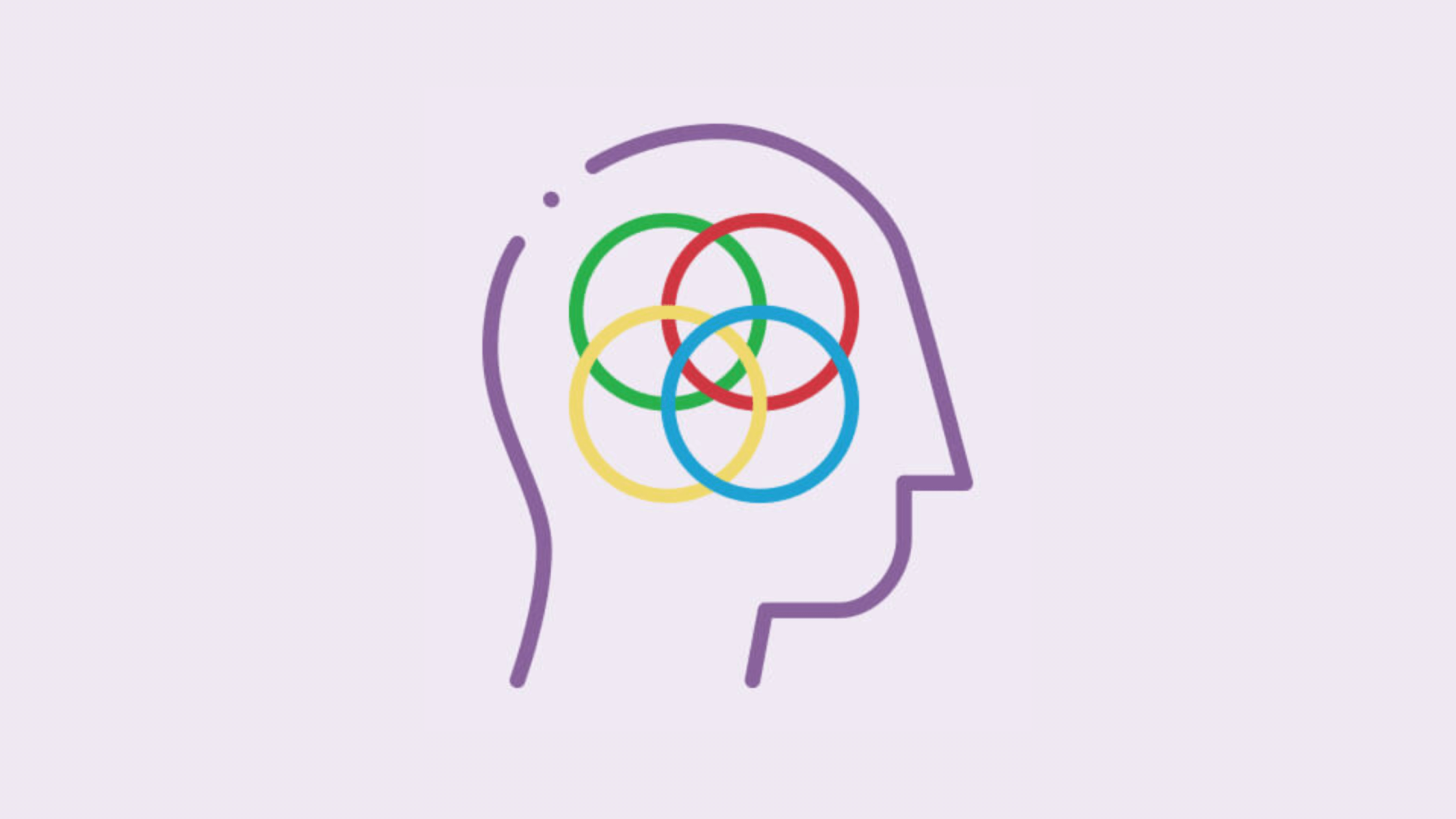In the skilled trades, you might be working with plans, permits, tools, and heavy machinery, but it’s people who can truly make or break a project. Whether you’re the architect, project manager, or an apprentice, having a thorough understanding of yourself and your team will make any job site run smoother, more efficiently, and with fewer conflicts. A personality evaluation like the DiSC Assessment can help you see your strengths and discover areas for improvement, and sharing results amongst your team may help you improve communication, reduce conflict, and become a better leader.
What is the DISC Personality Assessment?
The DiSC personality assessment has evolved over several decades, beginning in 1928, when William Moulton Marston first wrote about what he called “DISC theory” in his book “Emotions of Normal People.” He wrote that people express themselves and their emotions through four main personality styles:
- Dominance (D)
- Inducement (I)
- Submission (S)
- Compliance (C)
This theory eventually evolved into the modernday DiSC Personality Assessment, which stands for Dominance, Influence, Steadiness, and Compliance. It’s designed to help you understand your behavior, how you interact with others, and your ideal work environment.
What’s unique about DiSC is that it doesn’t pigeonhole people into one specific “type” but instead shows where you fall on a spectrum of the four styles. This flexible approach lets you understand your natural personality and areas you might want to improve.
How does the DiSC assessment work?

The DiSC assessment is usually taken online—shorter versions are often available for free. The assessment consists of a series of questions about your preferences and how you would typically respond in different scenarios. When you finish the evaluation, you receive a profile highlighting your main personality style and secondary traits. This profile gives insight into your strengths and challenges and how to use this knowledge to collaborate better with others.
DiSC personality types

Under the DiSC model, you aren’t boxed in or labeled with one specific trait. Instead, you are given a primary type (and sometimes a secondary type) and a score for each personality area. This allows you to better understand your profile and personality and why you might get along well with some coworkers and clash with others.
Dominance
Those scoring high in Dominance are motivated by power, success, winning, and authority. They enjoy competition, challenging themselves and their teams, and immediately seeing results. They tend to be blunt communicators and somewhat skeptical.
Influence
I-types feel it’s vital to express enthusiasm and excitement, get others working together, and take concrete steps toward their goals. They like maintaining good relationships with others, gaining recognition, and participating in group activities. Those scoring high in Influence hate being ignored and love to persuade and convince others.
Steadiness
Those with high Steadiness scores prioritize supporting others and keeping things stable and reliable. They are gentle, dependable, and like working with others. To motivate an S-type, express sincere appreciation and allow them opportunities to help others.
Compliance/Conscientiousness
Scoring high in the Compliance/Conscientiousness type indicates that someone is independent, private, logical, and analytical. They are driven by the desire to use their extensive knowledge and gain even more expertise to add to their arsenal. C-types often challenge assumptions, find it important to be factually correct and accurate, and hate being wrong.
How the DiSC personality assessment can benefit you (especially in the AEC space)
Self-awareness
When you’re self-aware, you can look inward to understand your strengths, weaknesses, and motivations. DiSC can help you become more self-aware by revealing your communication style, motivations, and personality traits. If the DiSC Personality Assessment reveals that you are a Dominant individual, for example, you might realize that you could benefit from being more patient with your team. If you score higher in Steadiness, you might realize that you need to work on being more confident and decisive to excel in a demanding environment like architecture, engineering, and construction.
Being aware of your personality type and its possible drawbacks means you can build on your strengths and work on possible weaknesses, making you a better teammate and a stronger leader.
Communication
In construction, a successful project often depends on working with many different teams and collaborating and communicating effectively with each one. DiSC can help you recognize different communication styles and adapt to others. If you know that a teammate has a Compliant style, you might make sure to provide them with detailed instructions. Someone with an Influencing style would appreciate an open and enthusiastic conversation instead.
Conflict resolution
Disagreements are bound to surface on any job site, especially under the pressure of long workdays and tight deadlines. The DiSC Personality Assessment can provide insights to help your team handle conflict better by encouraging empathy and understanding. For instance, while a Dominant person’s first instinct might be to address an issue quickly and directly, the DiSC types can help them understand that their Steady style coworker usually prefers to avoid confrontation and approach the conversation with more subtlety. Understanding why you and your team respond the way you do can help reduce conflict and resolve it easier if it does occur.
Teamwork
Construction projects run a lot smoother when they have a well-functioning team. By taking the DiSC Assessment, you can help understand the working styles and potential friction points of you and everyone on your crew. Understanding how your coworkers communicate and what motivates them makes it easier to assign tasks based on their strengths, which boosts productivity and harmony.
Leadership
Becoming a great leader isn’t just about being strong-willed and decisive; you must also understand how to communicate with and motivate your team. The DiSC Assessment can help you recognize your teammate’s personality traits and approach them in a style that works for their type. The DiSC assessment also enables you to awareness of your own areas for improvement, which can improve your leadership style. For instance, those who score high in Dominance may thrive in decision-making scenarios but find their listening skills need a little work.
The more you know…
Knowledge is power. Arming yourself with insight into your personality, priorities, and motivations—and those of your coworkers—can mean a more harmonious worksite and clearer communication. For a more thorough understanding of the DiSC personality styles, you can also read the brilliantly titled Surrounded by Idiots, which uses a color system to code the four types and provides a deeper dive into their characteristics.
For more tips and advice on leadership, communication, and teamwork, subscribe to our weekly newsletter.


